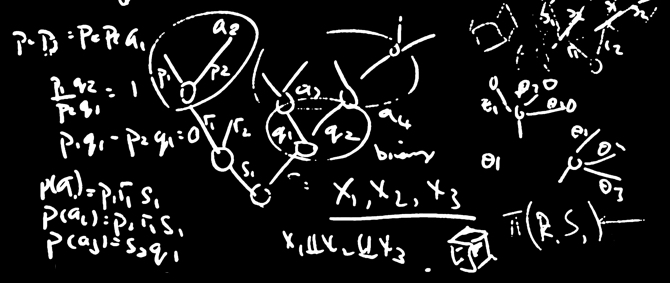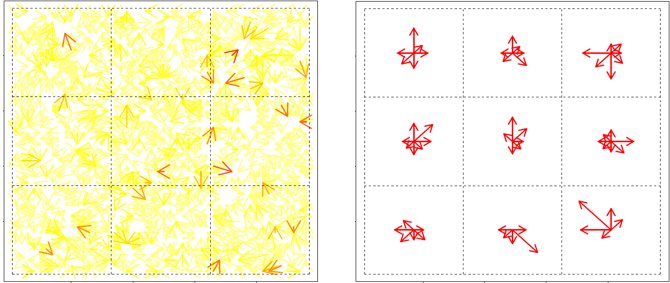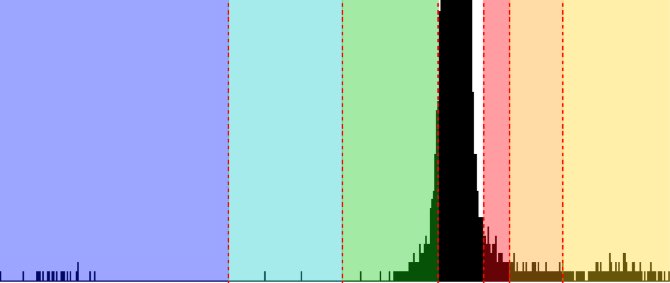Research degrees (PhD)
General queries
stats dot pg dot support at warwick dot ac dot uk
PhD Admissions Tutors
Prof Jim Smith J dot Q dot Smith at warwick dot ac dot uk
Dr David Croydon D dot A dot Croydon at warwick dot ac dot uk
Why do a PhD in Statistics?
Statistics and probability are growing disciplines that open doors to a particularly wide variety of interesting and rewarding careers.
This reflects the general global demand for graduates with good statistical skills; a PhD represents the pinnacle of advanced training in statistical methods and is widely recognised by major employers.
-
The need for good PhD-trained statisticians in academia and other scientific research establishments continues to be very strong indeed, with demand out-stripping supply.
-
Demand for statistics PhD graduates outside academia, for example in finance, pharmaceuticals, marketing, internet services and other areas of public activity and commerce, is also very strong.
Why Warwick?
The University of Warwick has one of the largest Statistics departments in the world, with a thriving PhD program and a long-established reputation for research activity of the highest quality, enhancing both the PhD-student experience and the demand for our PhD graduates.
We have been ranked in the top group at the national Research Excellence Framework REF 2014 and at its predecessor, the Research Assessment Exercise RAE 2008. Our overall satisfaction rate in the latest Postgraduate Research Experience Survey (PRES) was 100%.
Key benefits for our doctoral students
- PhD supervision in all major areas of probability and theoretical, applied and computational statistics as well as related areas such as complexity science, systems biology and mathematical finance.
- Warwick Statistics leads the national EPSRC-funded Academy for PhD Training in Statistics (APTS), which provides a unique programme of intensive courses and networking opportunities for first-year PhD students.
- Involvement in several doctoral training centres and research initiatives covering a wide range of theoretical and applied fields.
- A large and active community of PhD students offering e.g. the regular Young Researchers' Meeting to promote scientific interaction in a particularly friendly environment.
- PhD students gain valuable experience in UG teaching such as problem classes. Teaching is part of academic life and leads to a deeper understanding of the subject benefitting your own research and helps acquiring communication, team work and organizational skills, which are highly sought after by employers in academia or other sectors. PhD students will undertake teaching (paid by the hour) and receive training and ongoing support for this work.
- Funding from various sources to support PhD students, either partially or fully; awarded annually on a competitive basis. Funds are also available for external training (e.g. APTS), research workshops and conferences.
Doctoral Training Centres/Programmes
- The Oxford and Warwick Statistics Program OxWaSP is a doctoral training centre run jointly with the Department of Statistics at the University of Oxford. Leading research in the theory, methods and applications of Statistical Science for 21st Century data-intensive environments and large-scale models.
- Warwick's Mathematics and Statistics Doctoral Training Centre MASDOC provides exciting new opportunities at the interface between statistics, probability and applied mathematics.
- The Leverhulme-funded "Bridges" programme of doctoral scholarships provides new opportunities for maths/stats graduates to bridge the social and mathematical sciences by involving quantitative approaches (mathematical, statistical or computational) to resolve social sciences questions.
- Mathematics for Real-World Systems MathsSys is a new doctoral training centre coordinated by three interdisciplinary research centres. The PhD students will be supervised by academics from a range of departments including Statistics, Mathematics, Physics, Systems Biology and Computer Science.
- The Molecular Analytical Science MAS CDT will train a new generation of scientists in exploiting synergies between different experimental methods and in combining data collection with experimental design, statistical analysis, modelling and simulation.
Find out more about our research
- Research Spotlights brochure featuring a sample of recent applied research projects
- Departmental research pages
- Individual academics by research areas
Research intiatives
Special initiatives promote research and interaction in broad major areas. They provide the Department's PhD students with a wide variety of academic resources, including sustained programmes of research seminars and international workshops.
-
The Probability at Warwick initiative P@W
-
The Stochastic Finance at Warwick initiative SF@W
Research ranking
Warwick Statistics and Warwick Mathematics Institute together rank third nationally among mathematical sciences research groups, in the most recent UK government research assessment REF 2014. In particularly, the research environment at Warwick is rated as the very best in the UK for mathematical sciences (achieving the maximum score of 100% at 4*).




